- Home
- Steven Brust
Jhereg Page 2
Jhereg Read online
Page 2
Learning diplomacy was the more difficult task. My natural inclinations didn’t run that way at all, and I had to be on my guard all the time. But, eventually, I found that I could be very polite to a Dragaeran who was insulting me. Sometimes I think it was that, more than anything else, which trained me to be successful later on.
Selling the restaurant was more of a relief than anything else. I had been running it on my own since my father died, and doing well enough to make a living, but somehow I never thought of myself as a restaurateur.
However, it did bring me up rather sharply against the problem of what I was going to do for a living—both immediately and for the rest of my life. My grandfather offered me a half-interest in his witchcraft business, but I was well aware that there was hardly enough activity to keep him going alone. I also had an offer from Kiera, who was willing to teach me her profession, but Easterner thieves don’t get good prices from Dragaeran fences. Besides, my grandfather didn’t approve of stealing.
I sold the place with the problem still unresolved, and lived off the proceeds for a while. I won’t tell you what I got for it; I was still young. I moved into new quarters then, too, since the place above the restaurant was going to be taken by the new owner.
Also, I bought a blade. It was a rather light rapier, made to my measurements by a swordsmith of House Jhereg, who overcharged me shamefully. It was just strong enough to be able to counter the attacks of the heavier Dragaeran sword, but light enough to be useful for the ripostes by which an Eastern fencer can surprise a Dragaeran swordsman, who probably doesn’t know anything beyond attack-defend-attack.
Future unresolved, I sat back and tended my egg.
About two months after I had sold the restaurant, I was sitting at a card table, doing a little low-stakes gambling at a place that allowed Easterners in. That night I was the only human there, and there were about four tables in action.
I heard raised voices from the table next to me and was about to turn around, when something crashed into my chair. I felt a momentary surge of panic as I almost crushed the egg against the edge of the table, and I stood up. The panic transformed itself to anger, and, without thinking, I picked up my chair and broke it over the head of the guy who’d fallen into me. He dropped like a hawk and lay still. The guy who’d pushed him looked at me as if deciding whether to thank me or attack me. I still had the chair leg in my hand. I raised it, and waited for him to do something. Then a hand gripped my shoulder and I felt a familiar coldness on the back of my neck.
“We don’t need fighting in here, punk,” said a voice behind my right ear. My adrenalin was up, and I almost turned around to smash the bastard across the face, despite the knife he held against me. But the training I’d been giving myself came to the fore, and I heard myself saying, evenly, “My apologies, good sir. I assure you it won’t happen again.” I lowered my right arm and dropped the chair leg. There was no point in trying to explain to him what had happened if he hadn’t seen it—and even less if he had. When there’s a problem, and an Easterner is involved, there is no question about who is at fault. I didn’t move.
Presently I felt the knife being taken off of my neck.
“You’re right,” said the voice. “It won’t happen again. Get out of here and don’t come back.”
I nodded once. I left my money on the table where it was, and walked out without looking back.
I settled down somewhat on my way home. The incident bothered me. I shouldn’t have hit the guy at all, I decided. I had let my fear take over, and I reacted without thinking. This would never do.
As I climbed up the stairs to my apartment, my mind returned to the old problem of what I was going to do. I’d left almost a gold Imperial’s worth of coins lying on the table, and that was half a week’s rent. It seemed that my only talents were witchcraft and beating up Dragaerans. I didn’t think that there was much of a market for either.
I opened the door and relaxed on the couch. I took out the egg, to hold it for a while as a means of soothing my nerves—and stopped. There was a small crack in it. It must have happened when I banged against the table, although I’d thought it had escaped harm.
It was then and there, at the age of sixteen, that I learned the meaning of anger. A sheet of white fire flashed through me, as I remembered the face of the Dragaeran who had pushed the other into me, killing my egg. I learned that I was capable of murder. I intended to seek out that bastard, and I was going to kill him. There was no question in my mind that he was a dead man. I stood up and headed for the door, still holding the egg—
—And stopped again.
Something was wrong. I had a feeling, which I couldn’t pin down, that was getting through the barrier of my anger. What was it? I looked down at the egg, and suddenly understood in a burst of relief.
Although not consciously aware of it, I had somehow gotten a psionic link to the being inside the egg. I was feeling something through it, on some level, and that meant that my jhereg was still alive.
Anger drained from me as quickly as it had come, leaving me trembling. I went back into the middle of the room and set the egg down on the floor, as softly as I could.
I felt along the link, and identified the emotion I was getting from it: determination. Just raw, blind purpose. I had never been in contact with such singleness of aim. It was startling that a thing that small could produce such high-powered emotion.
I stepped away from it, I suppose from some unreasoning desire to “give it air,” and watched. There was an almost inaudible “tap, tap,” and the crack widened. Then, suddenly, the egg split apart, and this ugly little reptile was lying amid broken shell fragments. Its wings were tightly drawn up against it, and its eyes were closed. The wings were no larger than my thumb.
It—It? He, I suddenly knew. He tried to move; failed. Tried to move again, and got nowhere. I felt that I should be doing something, although I had no idea what. His eyes opened, but didn’t seem to focus on anything. His head lay on the floor, then moved—pitifully.
I felt along my link to him, and now felt confusion and a little fear. I tried to send back feelings of warmth, protection, and all that good stuff. Slowly, I walked up and reached for him.
Surprisingly, he must have seen my motion. He obviously didn’t connect the movement with the thoughts he was getting from me, however, for I felt a quick burst of fear, and he tried to move away. He failed and I picked him up—gingerly. I got two things for this: my first clear message from him and my first jhereg bite. The bite was too small, and the poison still too weak for it to affect me, but he was certainly in possession of his fangs. The message was amazingly distinct.
“Mamma?” he said.
Right. Mamma. I thought that over for a while, then tried to send a message back.
“No, Daddy,” I told him.
“Mamma,” he agreed.
He stopped struggling and seemed to settle down in my hand. I realized that he was exhausted and then realized that I was, too. Also, we were both hungry. At that point it hit me—What the hell was I going to feed him? All the time I’d been carrying him, I’d known that he was going to hatch someday, but it had never really sunk in that there was actually going to be a real, live jhereg there.
I carried him into the kitchen and started hunting around. Let’s see . . . milk. We’ll start with that.
I managed to get out a saucer and pour a little milk into it. I set it down on the counter and set the jhereg down next to it, his head actually in the saucer.
He lapped up a little and didn’t seem to be having any trouble, so I scouted around a little more and finally came up with a small piece of hawk wing. I placed it in the saucer; he found it almost at once. He tore a piece off (he had teeth already—good) and began chewing. He chewed it for close to three minutes before swallowing, but when he did, it went down with no trouble. I relaxed.
After that, he seemed more tired than hungry, so I picked him up and carried him over to the couch. I lay down and
placed him on my stomach. I dozed off shortly thereafter. We shared pleasant dreams.
The next day, someone came to my door and clapped, around mid-afternoon. When I opened the door, I recognized the fellow immediately. He was the one who’d been running the game the day before and had told me not to come back—with a knife held against the back of my neck for added emphasis.
I invited him in, being the curious type.
“Thank you,” he said. “I am called Nielar.”
“Please sit down, my lord. I’m Vlad Taltos. Wine?”
“Thank you, but no. I don’t expect to be staying very long.”
“As you wish.”
I showed him to a seat and sat down on the couch. I picked up my jhereg and held him. Nielar arched his eyebrows, but didn’t say anything.
“What can I do for you, then?” I asked.
“It has come to my attention,” he said, “that I was, perhaps, in the wrong when I faulted you for the events of yesterday.”
What? A Dragaeran apologizing to an Easterner? I wondered if the world was coming to an end. This was, to say the least, unprecedented in my experience. I mean, I was a 16-year-old human, and he was a Dragaeran who was probably close to a thousand.
“It’s very kind of you to say so, my lord,” I managed.
He brushed it off. “I will also add that I liked the way you handled yourself.”
He did? I didn’t. What was going on here?
“What I’m getting at,” he continued, “is that I could use someone like you, if you have a mind to work for me. I understand that you don’t have a job at the moment, and—” He finished with a shrug.
There were several thousand questions I wanted to ask him, starting with, “How did you find out so much about me and why do you care?” But I didn’t know how to go about asking them, so I said, “With all respect, my lord, I can’t see what kind of things I can do for you.”
He shrugged again. “For one thing, preventing the kind of problems we had last night. Also, I need help from time to time collecting debts. That sort of thing. I normally have two people who assist me in running the place, but one of them had an accident last week, so I’m shorthanded just at the moment.”
Something about the way he said “accident” struck me as strange, but I didn’t take any time out to guess at what he meant.
“Again with all respect, my lord, it doesn’t seem to me that an Easterner is going to look very imposing when standing up to a Dragaeran. I don’t know that I—”
“I’m convinced that it won’t be any problem,” he said. “We have a friend in common, and she assured me that you’d be able to handle this kind of thing. As it happened, I owe her a favor or two, and she asked me to consider taking you on.”
She? There wasn’t any doubt, of course. Kiera was looking out for me again, bless her heart. Suddenly things were a lot clearer.
“Your pay,” he continued, “would be four Imperials a week, plus ten percent of any outstanding debts you are sent to collect. Or, actually, half of that, since you’ll be working with my other assistant.”
Sheesh! Four gold a week? That was already more than I usually made while I was running the restaurant! And the commission, even if it were split with—
“Are you sure that this assistant of yours isn’t going to object to working with a hum—an Easterner?”
His eyes narrowed. “That’s my problem,” he said. “And, as a matter of fact, I’ve already discussed it with Kragar, and he doesn’t mind at all.”
I nodded. “I’ll have to think it over,” I said.
“That’s fine. You know where to reach me.”
I nodded and showed him to the door, with pleasant words on all sides. I looked down at my jhereg as the door snicked shut. “Well,” I asked him, “what do you think?”
The jhereg didn’t answer, but then, I hadn’t expected him to. I sat down to think and to wonder if the question of my future were being settled, or just put off. Then I put it aside. I had a more important question to settle—what was I going to name my jhereg?
I called him “Loiosh.” He called me “Mamma.” I trained him. He bit me. Slowly, over the course of the next few months, I developed an immunity to his poison. Even more slowly, over the course of years, I developed a partial immunity to his sense of humor.
As I stumbled into my line of work, Loiosh was able to help me. First a little, then a great deal. After all, who notices another jhereg flying about the city? The jhereg, on the other hand, can notice a great deal.
Slowly, as time went on, I grew in skill, status, friends, and experience.
And, just as his mother had predicted, I became a hunter.
previous | Table of Contents | next
previous | Table of Contents | next
1
“Success leads to stagnation; Stagnation leads to failure.”
I slipped the poison dart into its slot under the right collar of my cloak, next to the lockpick. It couldn’t go in too straight, or it would be hard to get to quickly. It couldn’t go in at too much of an angle, or I wouldn’t have room left for the garrotee. Just so . . . there.
Every two or three days I change weapons. Just in case I have to leave something sticking in, on, or around a body. I don’t want the item to have been on my person long enough for a witch to trace it back to me.
This could, I suppose, be called paranoia. There are damn few witches available to the Dragaeran Empire, and witchcraft isn’t very highly thought of. It is not likely that a witch would actually be called in to investigate a murder weapon and try to trace it back to the murderer—in fact, so far as I know, it has never been done in the 243 years since the end of the Interregnum. But I believe in caution and attention to detail. That is one reason I’m still around to practice my paranoia.
I reached for a new garrotee, let the old one drop into a box on the floor, and began working the wire into a tight coil.
“Do you realize, Vlad,” said a voice, “that it’s been over a year since anyone has tried to kill you?”
I looked up.
“Do you realize, Kragar,” I said, “that if you keep walking in here without my seeing you, I’ll probably die of a heart attack one of these days and save them the trouble?”
He chuckled a little.
“No, I mean it, though,” he continued. “More than a year. We haven’t had any trouble since that punk—What was his name?”
“G’ranthar.”
“Right, G’ranthar. Since he tried to start up a business down on Copper Lane, and you quashed it.”
“All right,” I said, “so things have been quiet. What of it?”
“Nothing, really,” he said. “It’s just that I can’t figure out if it’s a good sign or a bad sign.”
I studied his 7-foot frame sitting comfortably facing me against the back wall of my office. Kragar was something of an enigma. He had been with me since I had joined the business side of House Jhereg and had never shown the least sign of being unhappy taking orders from an “Easterner.” We’d been working together for several years now and had saved each other’s lives often enough for a certain amount of trust to develop.
“I don’t see how it can be a bad sign,” I told him, slipping the garrote into its slot. “I’ve proven myself. I’ve run my territory with no trouble, paid off the right people, and there’s only once when I’ve had even a little trouble with the Empire. I’m accepted now. Human or not,” I added, enjoying the ambiguity of the phrase. “And remember that I’m known as an assassin more than anything else, so who would want to go out of his way to make trouble for me?”
He looked at me quizzically for a moment. “That’s why you keep doing ‘work,’ isn’t it?” he said thoughtfully. “Just to make sure no one forgets what you can do.”
I shrugged. Kragar was being more direct about things than I liked, and it made me a bit uncomfortable. He sensed this, I guess, and quickly shifted back to the earlier topic. “I just think that all this pea
ce and quiet means that you haven’t been moving as fast as you could, that’s all. I mean, look,” he continued, “you’ve built up, from scratch, a spy ring that’s one of the best in the Jhereg—”
“Not true,” I cut in. “I don’t really have a spy ring at all. There are a lot of people who are willing to give me information from time to time, and that’s it. It isn’t the same thing.”
He brushed it aside. “It amounts to the same thing when we’re talking about information sources. And you have access to Morrolan’s network, which is a spy ring in every sense of the word.”
“Morrolan,” I pointed out, “is not in the Jhereg.”
“That’s a bonus,” he said. “That means you can find out things from people who wouldn’t deal with you directly.”
“Well—all right. Go on.”
“Okay, so we have damn good free-lance people. And our own enforcers are competent enough to have anyone worried. I think we ought to be using what we have, that’s all.”
“Kragar,” I said, fishing out a slim throwing dagger and replacing it in the lining of my cloak, “would you kindly tell me why it is that I should want someone to be after my hide?”
“I’m not saying that you should,” said Kragar. “I’m just wondering if the fact that no one is means that we’re slipping.”
I slid a dagger into the sheath on the outside of my right thigh. It was a paper-thin, short throwing knife, small enough to be unnoticeable even when I sat down. The slit in my breeches was equally unnoticeable. A good compromise, I felt, between subtlety and speed of access.
“What you’re saying is that you’re getting bored.”
“Well, maybe just a little. But that doesn’t make what I said any less true.”
I shook my head. “Loiosh, can you believe this guy? He’s getting bored, so he wants to get me killed.”
My familiar flew over from his windowsill and landed on my shoulder. He started licking my ear.

 Phoenix
Phoenix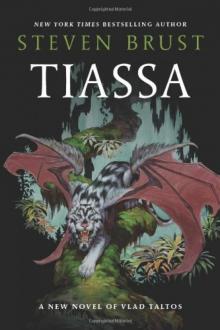 Tiassa
Tiassa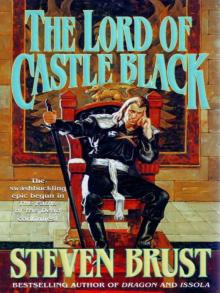 The Lord of Castle Black
The Lord of Castle Black To Reign in Hell: A Novel
To Reign in Hell: A Novel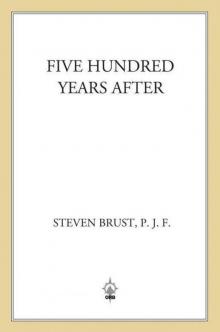 Five Hundred Years After (Phoenix Guards)
Five Hundred Years After (Phoenix Guards) The Book of Dzur: Dzur ; Jhegaala
The Book of Dzur: Dzur ; Jhegaala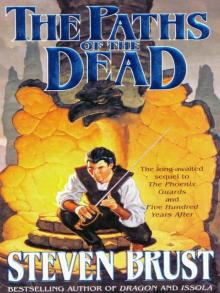 The Paths of the Dead
The Paths of the Dead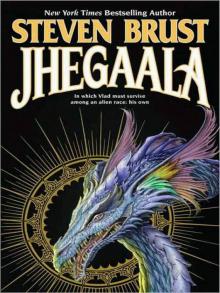 Jhegaala
Jhegaala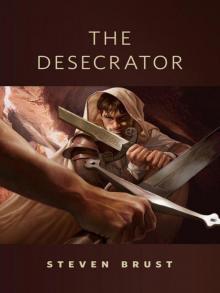 The Desecrator: A Tor.com Original
The Desecrator: A Tor.com Original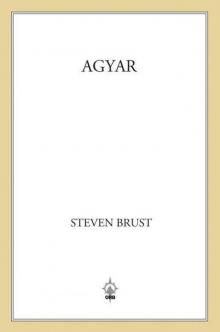 Agyar
Agyar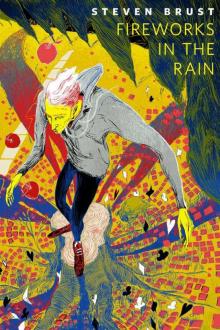 Fireworks in the Rain
Fireworks in the Rain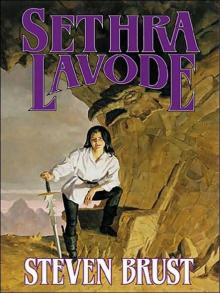 Sethra Lavode
Sethra Lavode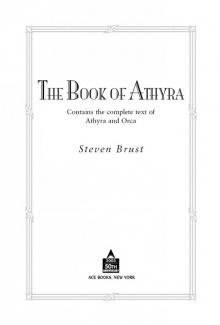 The Book of Athyra
The Book of Athyra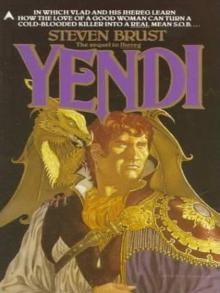 Yendi
Yendi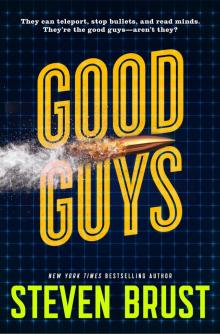 Good Guys
Good Guys The Book of Jhereg
The Book of Jhereg Cowboy Feng's Space Bar and Grille
Cowboy Feng's Space Bar and Grille Sethra Lavode (Viscount of Adrilankha)
Sethra Lavode (Viscount of Adrilankha) My Own Kind of Freedom
My Own Kind of Freedom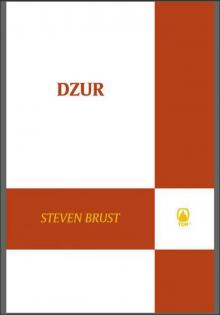 Dzur (Vlad Taltos)
Dzur (Vlad Taltos) The Lord of Castle Black: Book Two of the Viscount of Adrilankha
The Lord of Castle Black: Book Two of the Viscount of Adrilankha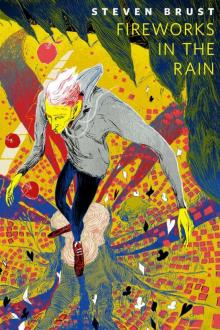 Fireworks in the Rain: A Tor.Com Original
Fireworks in the Rain: A Tor.Com Original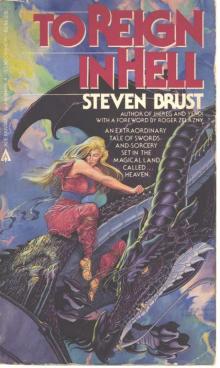 To Reign In Hell
To Reign In Hell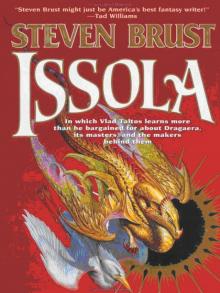 Issola
Issola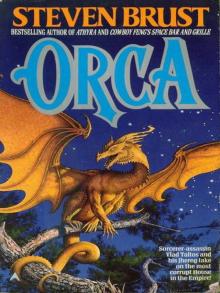 Orca
Orca Issola (Vlad Taltos)
Issola (Vlad Taltos)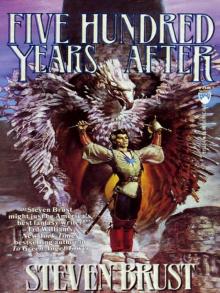 Five Hundred Years After
Five Hundred Years After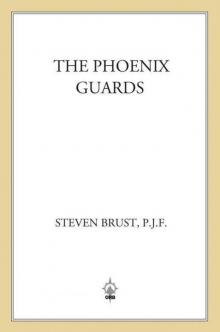 The Phoenix Guards
The Phoenix Guards Taltos
Taltos![[Vlad Taltos 06] Athyra Read online](http://i1.bookreadfree.com/i1/03/24/[vlad_taltos_06]_athyra_preview.jpg) [Vlad Taltos 06] Athyra
[Vlad Taltos 06] Athyra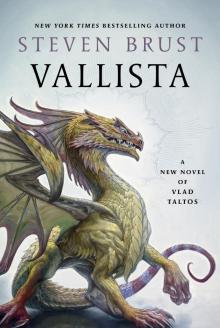 Vallista--A Novel of Vlad Taltos
Vallista--A Novel of Vlad Taltos The Incrementalists
The Incrementalists![[Vlad Taltos 04] Taltos Read online](http://i1.bookreadfree.com/i/03/24/[vlad_taltos_04]_taltos_preview.jpg) [Vlad Taltos 04] Taltos
[Vlad Taltos 04] Taltos![[Vlad Taltos 03] Teckla (v 1.1) Read online](http://i1.bookreadfree.com/i1/03/27/[vlad_taltos_03]_teckla_v_1_1_preview.jpg) [Vlad Taltos 03] Teckla (v 1.1)
[Vlad Taltos 03] Teckla (v 1.1) The Book of Taltos
The Book of Taltos The Paths of the Dead (Viscount of Adrilankha)
The Paths of the Dead (Viscount of Adrilankha) Jhegaala (Vlad Taltos)
Jhegaala (Vlad Taltos)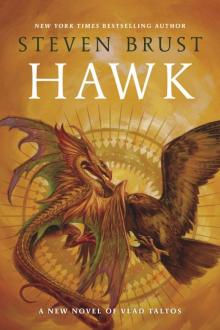 Hawk (Vlad)
Hawk (Vlad)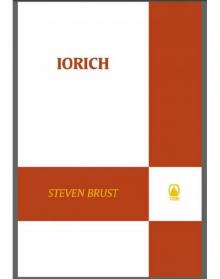 Iorich
Iorich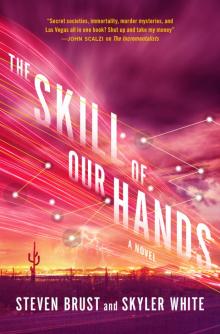 The Skill of Our Hands--A Novel
The Skill of Our Hands--A Novel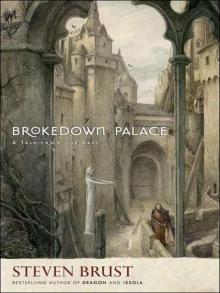 Brokedown Palace
Brokedown Palace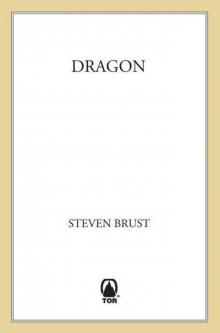 Dragon (Vlad Taltos)
Dragon (Vlad Taltos) Dragon
Dragon Athyra
Athyra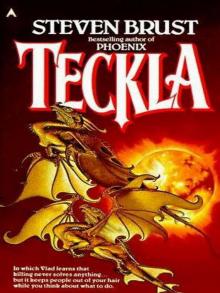 Teckla
Teckla Dzur
Dzur